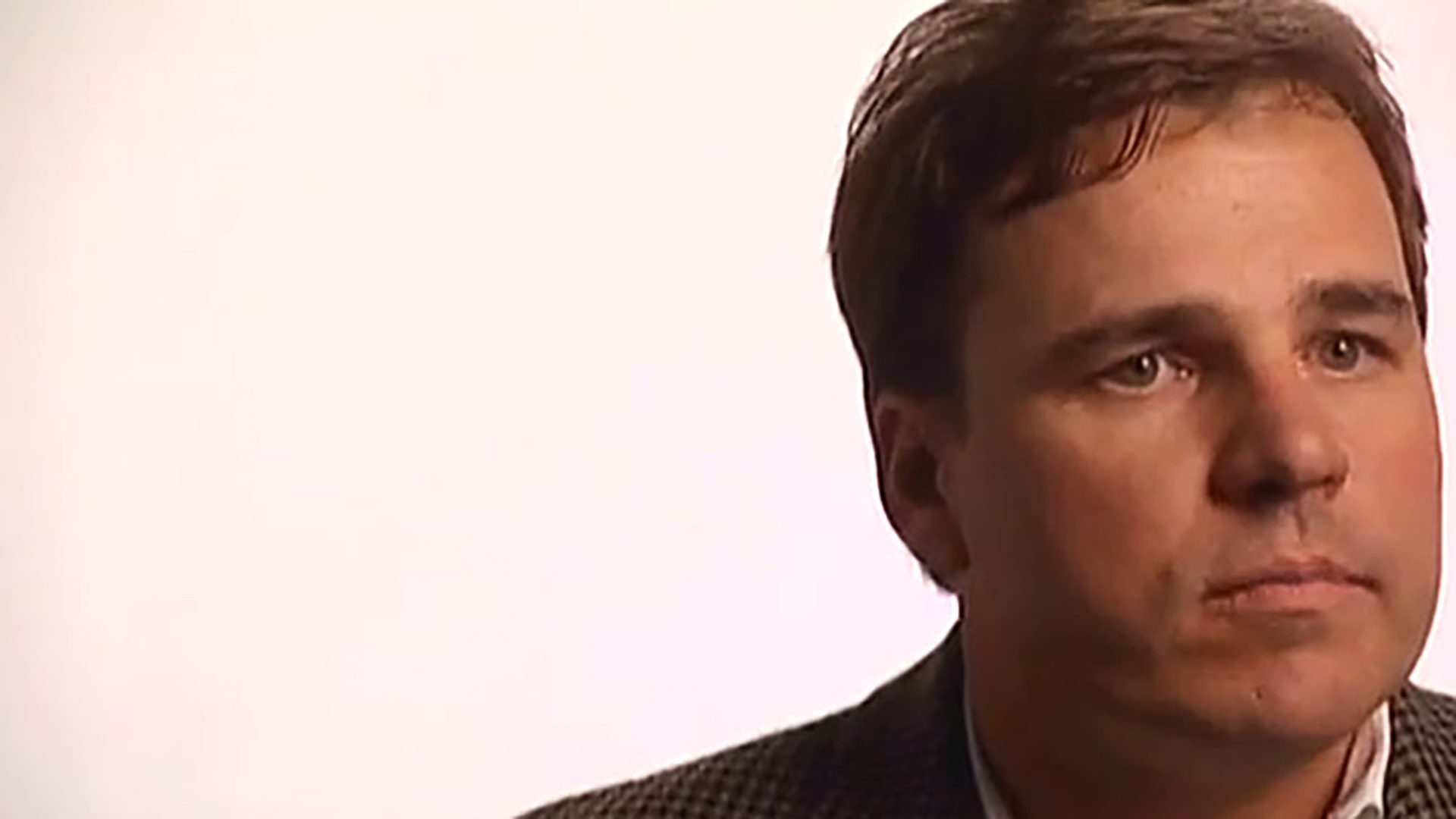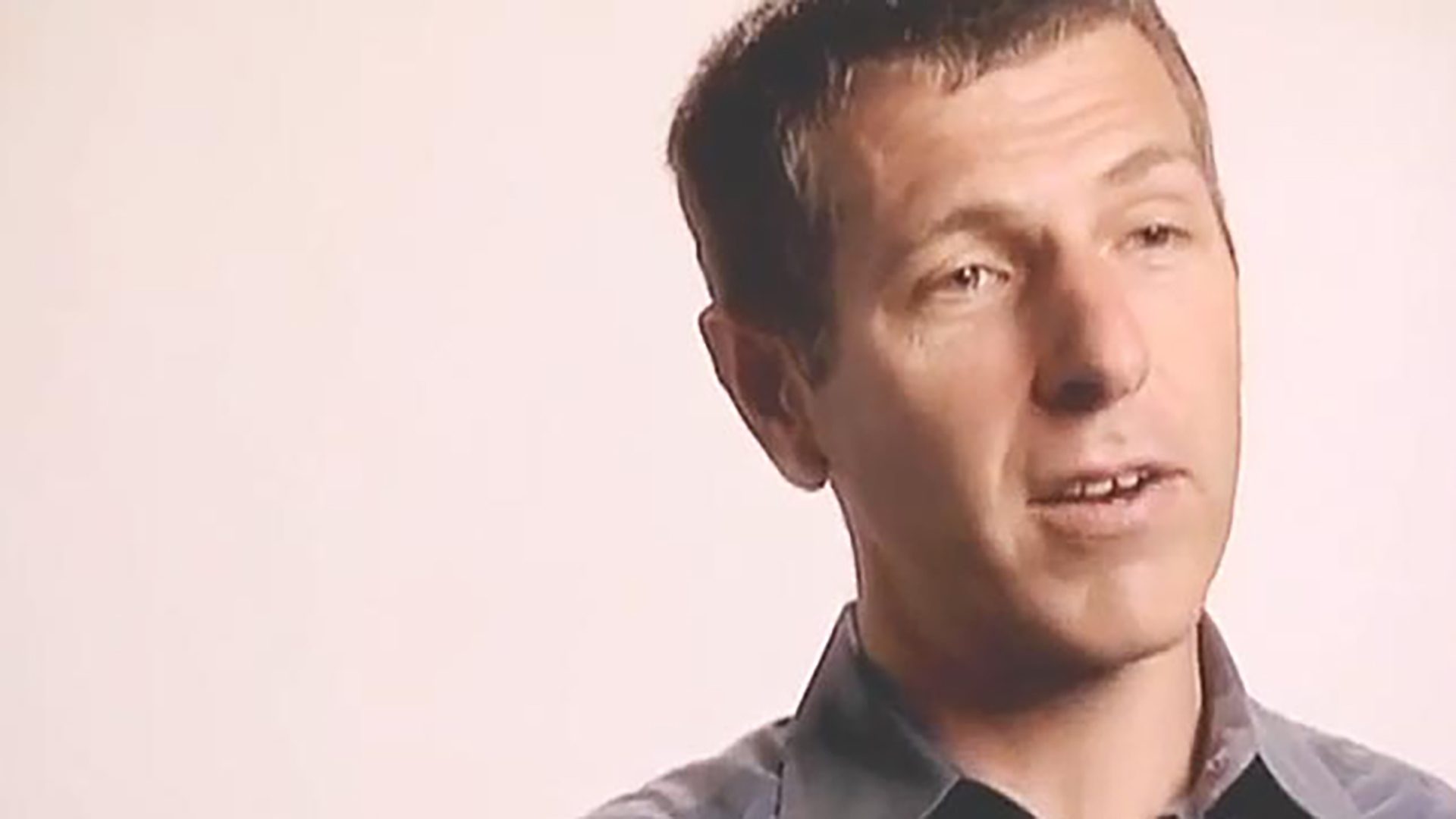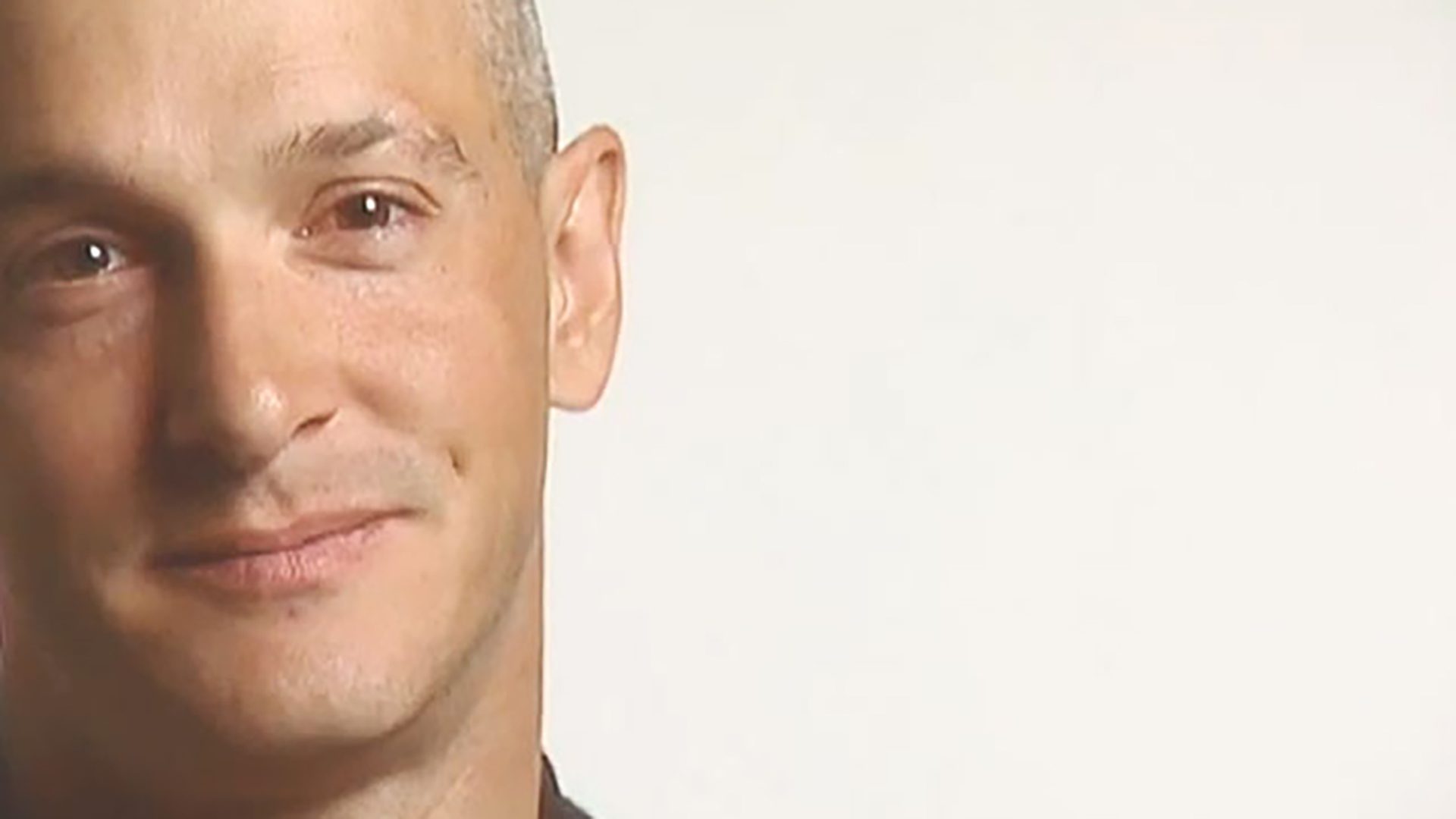Survivor Interview – Mike K.
Mike, a breast cancer survivor, talks about infertility, finding meaning in his cancer experience, and how hope has helped him during his survivorship.

We were on a skiing vacation in Vail, Colorado, and after skiing I was in a hot tub and just somehow felt my left nipple, and there was a lump under the nipple itself about the size of a B.B. or perhaps a small pea. That was February of 1997.
I had a neighbor that was a plastic surgeon, and later during that summer I was out cutting my grass, and I noticed that the lump had gotten considerably larger, and I pointed it out to my neighbor and he said, “By all means, let’s just stop by the office and we’ll yank that thing out.” So a couple of weeks thereafter—this was in August—he did a very gross excision of this little lump, and it was about the size of a small strawberry, about two centimeters by two centimeters. I had stage 3 breast cancer.
What they did to me at that point was they treated me with high dose chemotherapy, then three months thereafter they did a radical mastectomy, so my left breast is gone, and after that I went through a stem cell therapy program. After that therapy, I was also followed up with radiation therapy. That was almost six years ago.
There are different levels of hope as you go through this whole thing. When you first hear the words that you have cancer, it’s incredibly devastating. Then when you go to a doctor, and he says, “But I can cure you,” you hang on to those four letters, “cure,” and that gives you just so much incredible hope. Once you get through the battery of tests, and they’ve staged you and you do all of this stuff, what’s left is hope, and that’s what you play with every day. Then you wake up one morning, and you realize that you’re alive. You wake up and you smell and you realize that, “Man, I’m alive.” You go through your day with hope, and that’s kind of it.
I did not grow up in a real traditional religious environment. It was little bit more eclectic, I guess. When I was first diagnosed with cancer we had an acquaintance. She was a very young woman when she was first diagnosed. I think she was first diagnosed with breast cancer in her early 20’s. She had a mastectomy and it was stage four. She went through five years of therapy, married, had a child, and a year after that she developed stage four cancer in her other breast. And when she found out about my illness, she called me and she said, “Mike, there are three things that will get you through this. Number one is your faith, your faith in God, whoever that God may be. Number two, it’s your choice in medicine and doctors and treatment. And number three, it’s your own personal drive and your own personal will.” So those three simple little statements were very profound to me.
My wife and I would have liked to have had another child; however, when I entered my treatment regiment things went very, very quickly, and I was never really given any options in terms of being able to bank any of my sperm or any of those kinds of things. Our heads were spinning at such an incredible rate, by the time we figured out what was going on we were really a little bit late on that. I am infertile, so the chemotherapy kind of shocked my reproductive system.
When you’re 36 and you’re full of vitality and you’re in corporate America, you worry about 401K plans and those kinds of things. Today I try to live life from kind of an adventurous side of the equation. I try to be much more cognizant of humanity, of who we all are. Cancer is kind of a great equalizer. When you have cancer, it doesn’t really matter if you’re Hindu, if you’re Jewish, if you’re Christian, Muslim, if you’re from America, from Germany, or from the Middle East. I want to be much more open to all of humanity and all of who we are and the direction of our lives.
You bargain with God a little bit when you’re first diagnosed. If I can get just two or three more years out of this thing and see my child reach the age of five or something like that. Those are very, very emotional, traumatic, personal experiences that I went through, that my wife went through, and my immediate family went through as well. And it’s always there. And there are no guarantees. You move forward one step at a time and one day at a time. But the emotion and the trauma is very real, and it doesn’t go away.
I think that there are people that are survivors that did not want their children to know about the situation or their illness. For me, that wasn’t necessarily the right path. I wanted to be open and very forthright with my kids. I knew that I was going to be bombarded with chemotherapy; I knew that my hair was going to fall out; I knew that all of these things were going to happen, so I wanted to confront them and I wanted to speak to them openly about that. I do know that one of my neighbors told one of their children before I had the opportunity to tell my children, and that was a little bit uncomfortable and it was kind of weird. I think it’s been a very big part of my children’s early lives. Their grandfathers have passed away, succumbed to cancer of the last couple of years, and then I survived breast cancer, and now my father has been afflicted with pancreatic cancer. He was diagnosed roughly about four to six weeks ago. So this is something that affects all of us in various degrees and in various stages and positions in your life. And unfortunately for my children, it’s there.
My new physician asked me about doing some genetic testing and some genetic mapping. And I’m still trying to make that determination as to whether or not this is something that I want to do. I clearly see the benefit associated with it in terms of my immediate lineage; however, we live in a very crazy administrative health care environment in this country, and there can be some very negative ramifications in regards to my children if they carry a positive gene in terms of being able to qualify for health care in this country, and those are some very, very real questions. So it’s kind of a scary reality associated with some of the genetic markers and genetic testing that’s available out there. It’s not a decision that you really should have to make based on those criteria.
I’ve always been kind of a relatively optimistic person, and I’ve had confidence in myself. I’m not a doom and gloomer kind of a person by nature. But I think through this, I think a lot of those attributes kind of proliferated themselves, if you will, or precipitated, somewhat. Inside there’s uncertainty. There is a world of uncertainty, but yet you can kind of transcend that uncertainty into a myriad of other situations in life, in your life, in my life. Those are things that you can’t necessarily control, so you deal with it and kind of move on.
I didn’t beat anything. I think a very appropriate term is survivor. I’m a cancer survivor. I don’t claim that I’ve beaten anything here. You just try to find a better place in life for yourself and try to come back and somehow give something back to the community and something back to the people that helped you and somehow be a part of something that can help people that will have future afflictions. And sometimes, I do feel a little bit guilty about things. I feel guilty about my own survivorship when I know of people that did not survive, people that helped me survive my illness that are not here today. And then I feel guilty sometimes that I’m not doing enough to help. And then sometimes I want to get away from it, and you want to move back and do something else and get away from it.
I think survivorship gives you a chance to do some different things with your life. For me survivorship means, hopefully, being able to do some different things and give something back to the community, something back that benefits all of mankind and all of humanity. And it’s given me a chance to do things that I wanted to do and go places that I want to go. When it’s over and it’s done with, I want to be very satisfied with who I was and the way that I lived my life and the things that I accomplished in my life, these little spots along the way.
My name is Mike Kriz, and I am a six-year breast cancer survivor.

